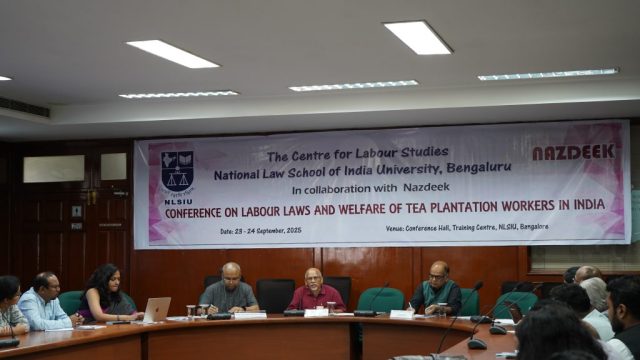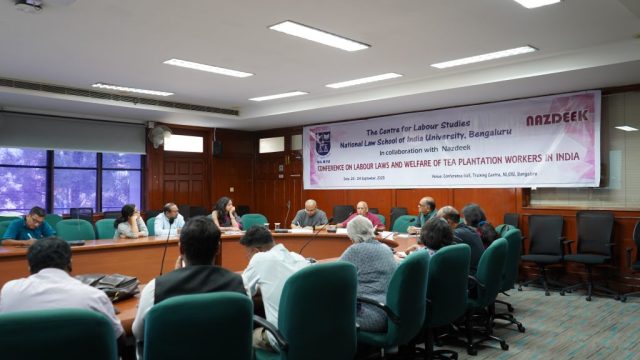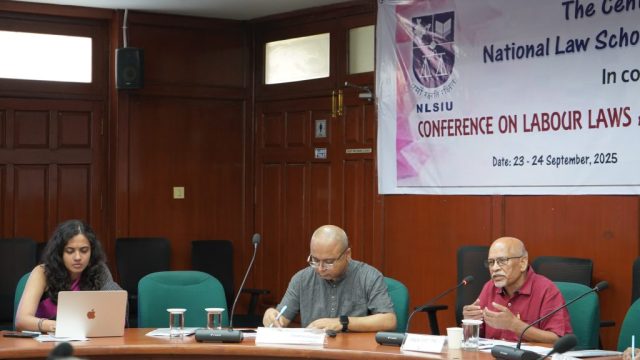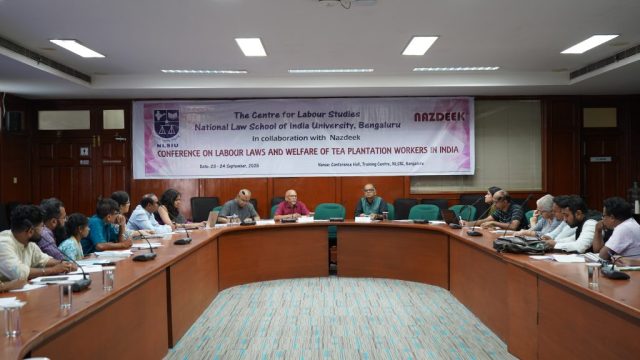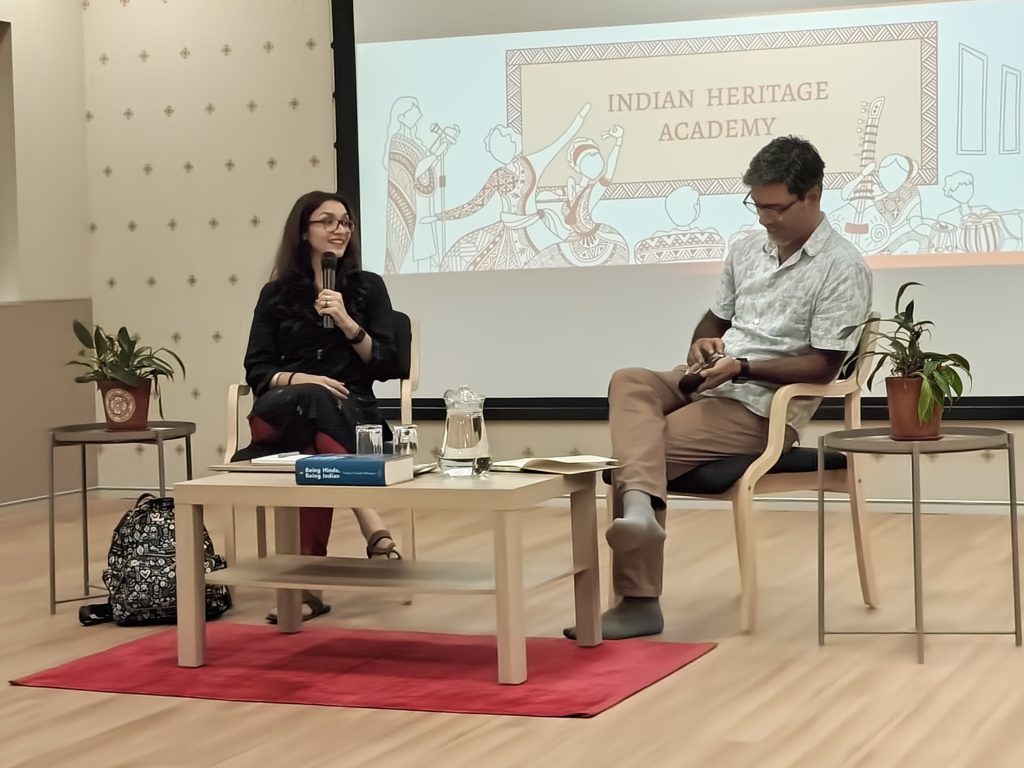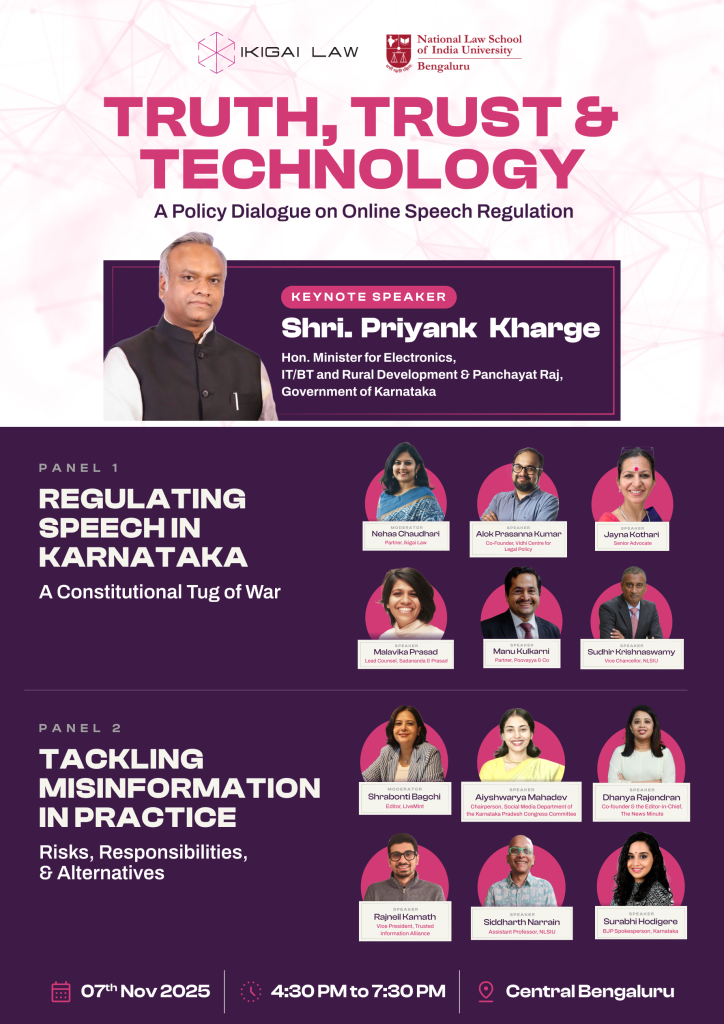 The National Law School of India University, Bengaluru and Ikigai Law, a law and public policy firm, co-hosted an event on ‘Truth, Trust & Technology: A Policy Dialogue on Online Speech Regulation,’ on November 7, 2025.
The National Law School of India University, Bengaluru and Ikigai Law, a law and public policy firm, co-hosted an event on ‘Truth, Trust & Technology: A Policy Dialogue on Online Speech Regulation,’ on November 7, 2025.
The event was held from 5 pm to 7 pm in Central Bengaluru.
About the Policy Dialogue
Recently, copies of draft ‘Misinformation and Hate Speech Bills (Bills)’ attributed to the Karnataka Government have sparked critical conversations on how to best address online harms while upholding constitutional freedoms. With the Government of Karnataka planning consultations, this dialogue provides a timely opportunity for voices to deliberate on how Karnataka can shape balanced, practical, and constitutionally sound approaches to regulating misinformation and hate speech, while safeguarding fundamental freedoms.
This dialogue offered a front-row view into the debates shaping India’s approach to online speech.
Format and Themes
The event convened diverse groups of participants ranging from lawyers, journalists, policy professionals, academia, and industry, shaping India’s tech policy landscape.
The event opened with a keynote address and Q&A featuring Shri. Priyank Kharge, Minister for Electronics, IT/BT and Rural Development & Panchayat Raj, Government of Karnataka. This was followed by two panel discussions:
1. Panel 1 – Regulating speech in Karnataka: A constitutional tug of war
This panel examined the constitutional principles and legal limits on speech regulation at the State level and its interplay with existing national laws.
Panellists – Jayna Kothari (Senior Advocate), Alok Prasanna Kumar (Co-founder, Vidhi Centre for Legal Policy), Malavika Prasad (Lead Counsel, Sadananda & Prasad), Manu Kulkarni (Partner, Poovayya & Co.), Nehaa Chaudhari (Partner, Ikigai Law) and Dr. Sudhir Krishnaswamy (Vice-Chancellor, NLSIU).
2. Panel 2 – Tackling misinformation in practice: risks, responsibilities and alternatives
This panel unpacked practical challenges of addressing misinformation and hate speech online and explored non-legislative solutions that governments can adopt.
Panellists – Aiyshwarya Manchanahalli Mahadev (Chairperson of Social Media Department, Karnataka Pradesh Congress Committee), Dhanya Rajendran (Co-founder and Editor-in-Chief, The News Minute), Rajneil Kamath (Vice-President, Trusted Information Alliance), Shrabonti Bagchi (National Features Editor, Mint), Siddharth Narrain (Assistant Professor of Law, NLSIU) and Surabhi Hodigere (Spokesperson for BJP, Karnataka).
Summary
This policy dialogue on digital speech and regulation was organised with particular focus on Karnataka’s proposed Misinformation and Fake News (Prohibition) Bill and the Hate Speech and Hate Crimes (Prevention and Control) Bill. The two proposed Karnataka Bills have sparked debates across the political, legal and civic landscape. Proponents argue that stronger state-level intervention is essential to address the social and political harm caused by misinformation and hate speech. Critics, however, caution that the two proposed Karnataka Bills rely on vague and sweeping definitions that risk criminalising legitimate expression, chilling journalism, and creating conflicts with central laws. This event brought together expert voices across disciplines for an informed conversation that examined constitutional limits, enforcement feasibility, freedom of press and viable alternatives to overboard regulation.
Karnataka’s Minister for IT/BT, Rural Development and Panchayati Raj, Shri. Priyank M Kharge in his keynote address, flagged the real-world consequences of misinformation, disinformation, and mal-information, which he stated were a threat to communal harmony and public order and threatened the fabric of democracy. He said that the government intended only to criminalise the spread of harmful falsehoods and not to criminalise legitimate forms of speech such as satire , opinion, parody etc. He said that the government of Karnataka had piloted a Disinformation Tracking Unit that was meant to debunk fake narratives. He said that the intention of the government was to “name, shame, and pull up” people who were deliberately circulating misinformation and that the Misinformation Bill was not meant to target those who criticised the government. The government’s intention was to build a society with scientific temperament and progress; and to enable truth and disincentivise fake news and misinformation.
This was followed by two panel discussions.
The first panel examined the constitutional principles and legal limits on speech regulation at a State level, its interplay with existing national laws. One of the strong themes that emerged in both panels was the problem of criminalising speech and panelists urged the government of Karnataka not to consider non-criminal law-based approaches to the regulation of harmful speech. Panelists urged the government to focus on mechanisms that could be introduced that work with the existing criminal law, rather than frame new criminal law offences. The panel cited the history of the misuse of the criminal law in India to curb dissent and selectively target political opponents. They also discussed instances of other states, in addition to Karnataka’s attempts at regulating misinformation.
Key themes of discussion included:
- Constitutional scrutiny of the Karnataka Bills: Assessing whether restrictions on “misinformation” and “fake news” fall within Article 19(2), examining issues of vagueness, overbreadth, prior restraint, and proportionality considering Supreme Court jurisprudence.
- Federalism and legislative competence: Considering whether Karnataka has the constitutional power to regulate online speech and intermediaries, under the IT Act, safe harbour protections, and potential repugnancy under Article 254.
- Safe harbour and intermediary liability: Exploring how Section 79 of the Information Technology Act, 2000 operates, and whether a State law can alter or undermine these protections.
- Constitutional pathways forward: Discussing the role of courts, legislatures, and regulators in balancing speech protection with the need to curb harm.
Meanwhile, the second panel examined the practical challenges of addressing misinformation and disinformation online (including in its definition and application) and explored non-legislative solutions that States can adopt. The panelists urged a non-partisan approach to the regulation of free speech that would address harms of misinformation and hate speech while protecting legitimate forms of speech.
Key themes of discussion included:
- Enforcement feasibility: A focus on whether state-level enforcement can realistically regulate borderless online speech, and the challenges of jurisdiction in the digital sphere.
- Safe harbour in practice: Examining the impact of potential erosion of intermediary immunity on platforms, users and fact-checkers when dealing with misinformation.
- Global practices to tackling misinformation: Approach of other jurisdictions towards misinformation and other.
- Impact on the ecosystem: Considering the consequences for journalism, satire, fact-checking, and civic discourse if punitive laws are enacted by the State.
- Alternatives to criminalisation: Highlighting co-regulation, self-regulation, independent fact-checking networks, and literacy initiatives, that can serve as alternatives to legislative rulemaking.
Follow this page for further updates and recordings of the sessions.
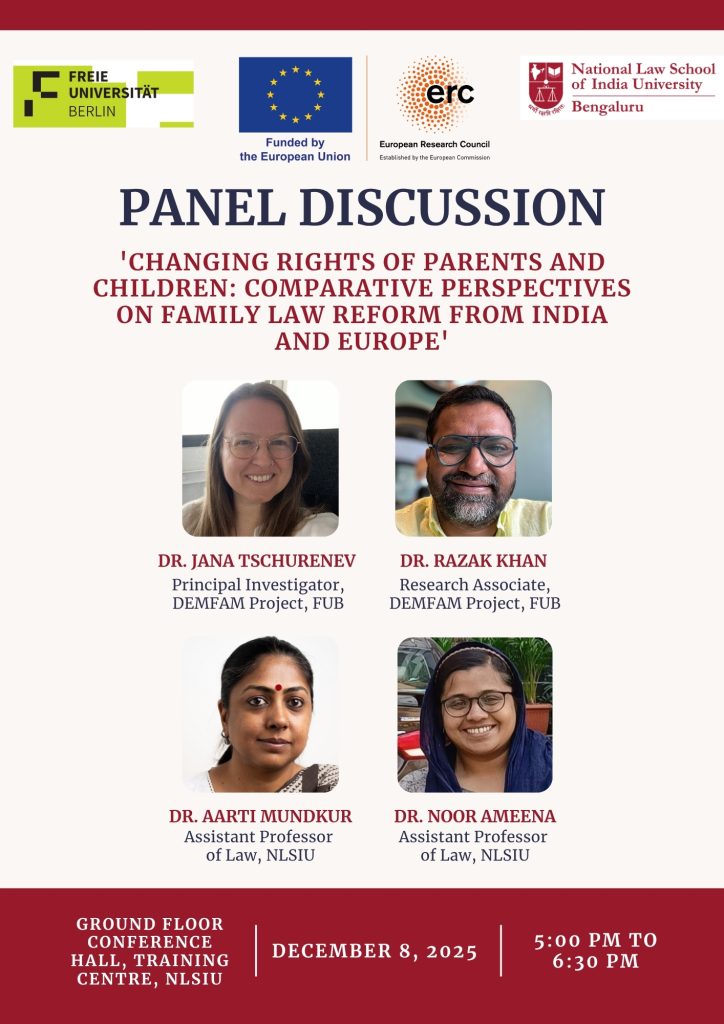 The Centre for Women and the Law (CWL), NLSIU, in collaboration with Freie Universität Berlin (FUB) and ERC Research Group, is organising a panel discussion on ‘Changing Rights of Parents and Children: Comparative Perspectives on Family Law Reform from India and Europe’ on December 8, 2025, at the Ground Floor Conference Hall, Training Centre, NLSIU.
The Centre for Women and the Law (CWL), NLSIU, in collaboration with Freie Universität Berlin (FUB) and ERC Research Group, is organising a panel discussion on ‘Changing Rights of Parents and Children: Comparative Perspectives on Family Law Reform from India and Europe’ on December 8, 2025, at the Ground Floor Conference Hall, Training Centre, NLSIU.
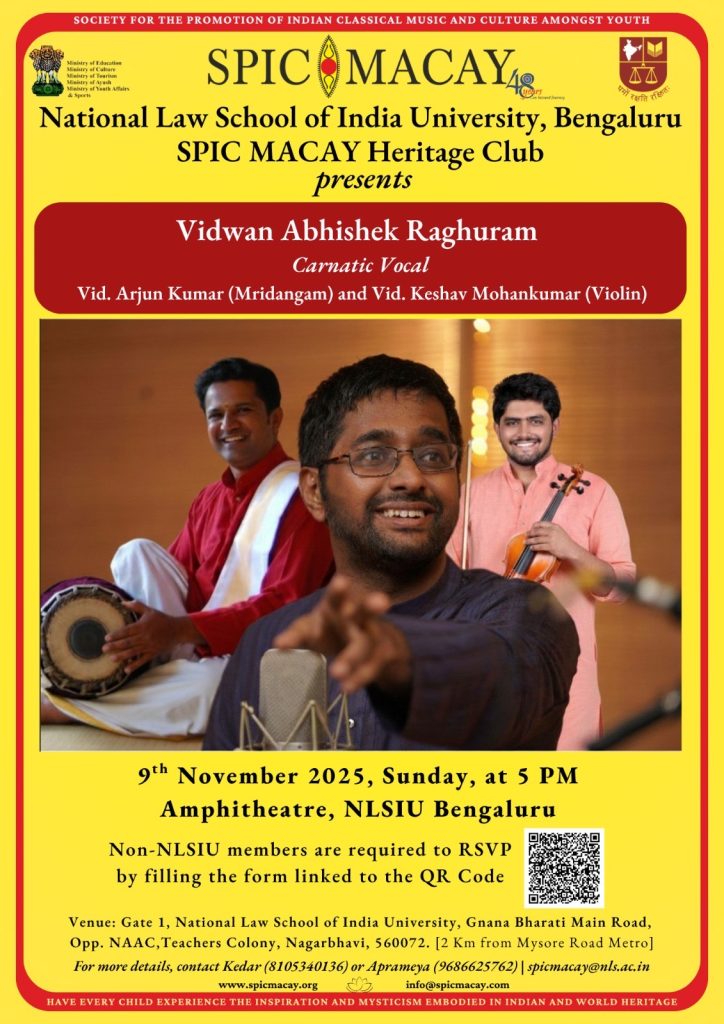 The NLS Chapter of SPIC MACAY is organising a Carnatic Vocal Music Concert on November 9, 2025, at the NLSIU campus. The performance will feature Vidwan Abhishek Raghuram on Vocal, Vidwan Arjun Kumar on Mridangam and Vidwan Keshav Mohankumar on Violin.
The NLS Chapter of SPIC MACAY is organising a Carnatic Vocal Music Concert on November 9, 2025, at the NLSIU campus. The performance will feature Vidwan Abhishek Raghuram on Vocal, Vidwan Arjun Kumar on Mridangam and Vidwan Keshav Mohankumar on Violin. The National Law School of India University, Bengaluru and
The National Law School of India University, Bengaluru and 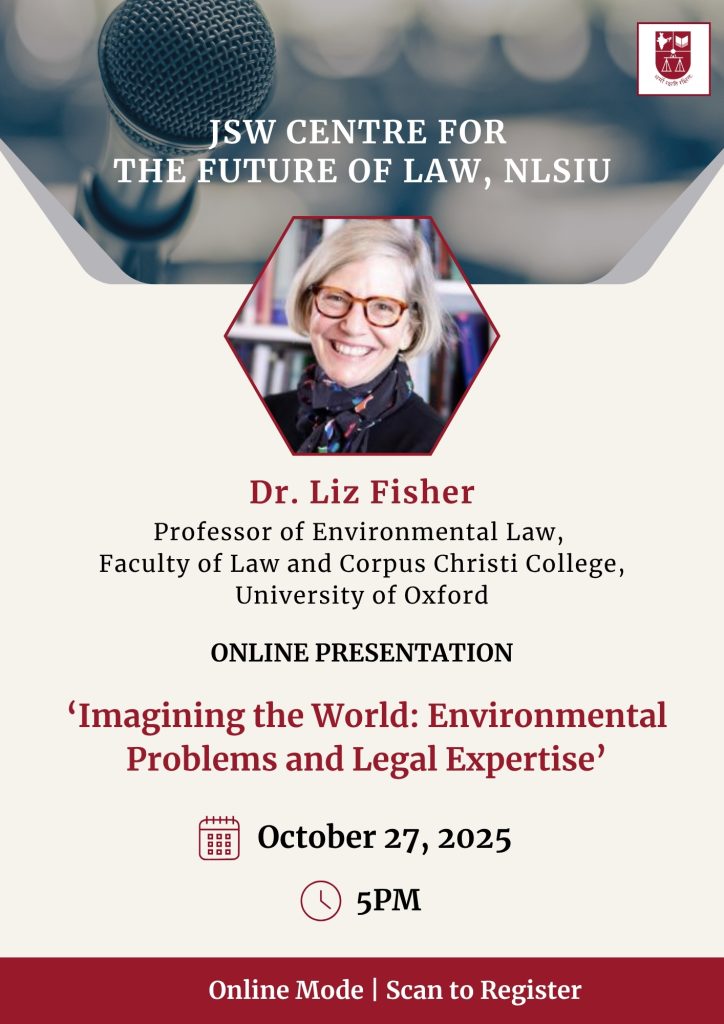 The
The 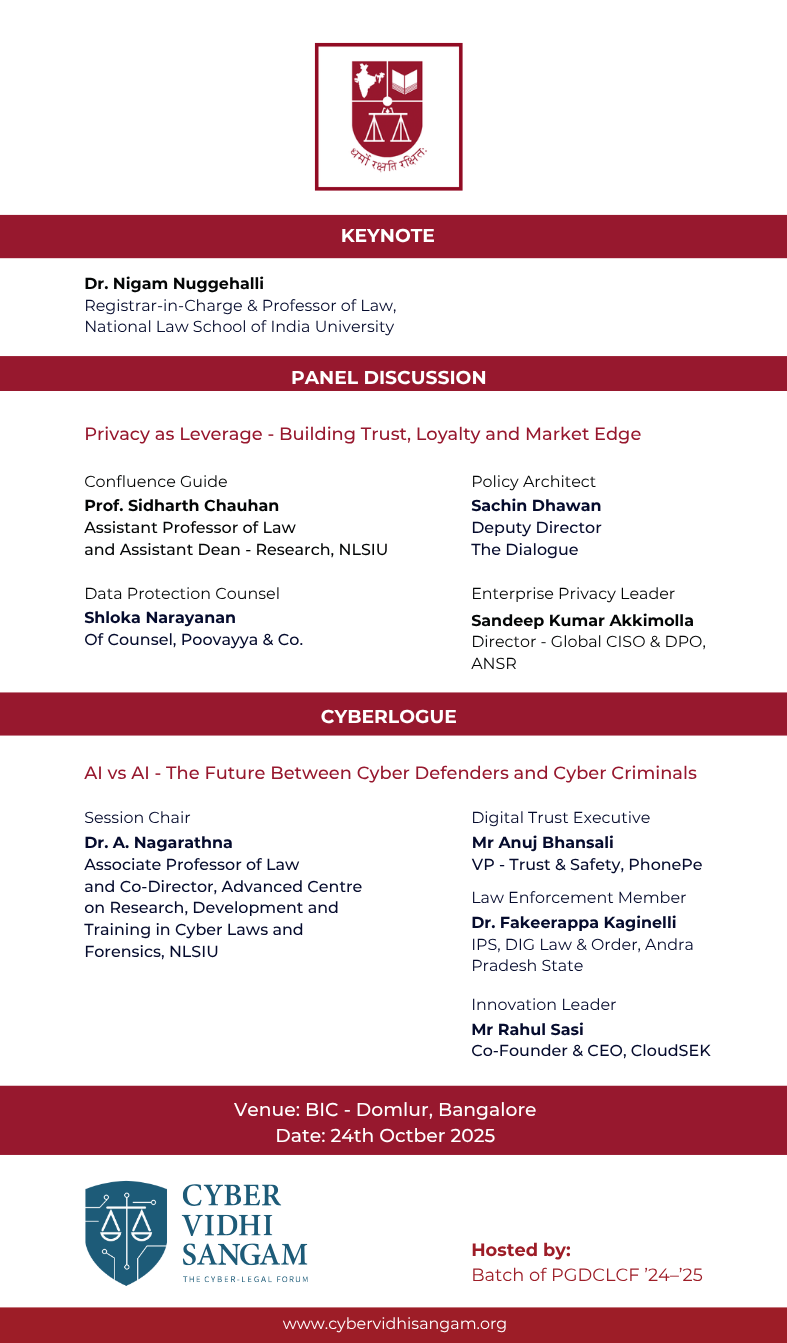 On October 24, 2025, alumni of the
On October 24, 2025, alumni of the 